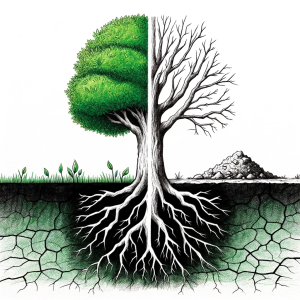
Racism in the U.S. Criminal Justice System
In contemporary discussions about justice and equity, one profound question arises repeatedly: How does racism shape the U.S. criminal justice system? This question isn’t just a matter of academic discourse but one of urgent social importance. Racism isn’t merely present within the system; it operates through it, influencing every aspect from policing to sentencing.
The notion that the American criminal justice system, a network including policing, courts, and corrections, is fundamentally underpinned by racism might seem daunting. Yet, this system reflects broader societal prejudices that have evolved over centuries, leading to systematic inequalities for racial and ethnic minorities.
Defining the Problem: What is Structural Racism?
Structural racism refers to the systematic ways in which social structures and institutions perpetuate racial inequality. It’s a form of racism that is embedded in the laws, policies, and practices of a society, often appearing neutral on the surface but resulting in disparate impacts on different racial groups. This is supported by historical and current disparities visible in policing, legal proceedings, and correctional measures against predominantly Black and Indigenous communities.
Cultural Racism: The Ideological Backbone
Alongside structural racism, cultural racism plays a critical role. It pertains to societal norms and values that presume superiority of one race over others. These ideologies permeate our subconscious, subtly influencing perceptions and actions across communities, further exacerbating structural racism’s impact.
How Racism Operates in Policing
Policing is perhaps the most visible interface where racial biases manifest. Historical data and current statistics show that Black individuals are disproportionately stopped, searched, and subjected to force. This isn’t a relic of the past but a continuing crisis, reflecting deep-seated racial prejudices that dictate who is viewed as a suspect or a threat.
The Courts and Racial Disparities
In the courts, these racial disparities continue. Black defendants are more likely to receive harsher sentences compared to their white counterparts for similar crimes. This disparity stems not only from overt discrimination but also from ingrained biases that affect judicial decisions.
Corrections: A Legacy of Inequality
The correctional system further illustrates these issues. Racial minorities, particularly Black men, are overrepresented in prisons and face longer sentences. This overrepresentation is not coincidental but a direct result of the aforementioned biases that funnel minorities into the system at higher rates.
Addressing Racism: Pathways Forward
Recognizing the pervasive influence of racism is the first step toward remediation. Reform efforts must address the foundational aspects of racism in the criminal justice system and not just the symptoms. Policies and practices need to be reevaluated and reformed with a clear focus on equity and justice for all, irrespective of race.
Encouraging Community Engagement
Communities must engage in this dialogue. Awareness, education, and activism play key roles in driving change. By understanding the roots of these issues and the mechanisms through which they operate, individuals and groups can better advocate for meaningful reforms.
Conclusion: A Call for Systemic Change
The evidence is clear: Racism is not only embedded in the U.S. criminal justice system; it drives it. To dismantle this, we need systemic change that addresses the deep-rooted biases and structures perpetuating racial disparities. This is not just about reforming a system but about transforming the societal values that underpin it.
Empower Your Public Health Journey – Subscribe and Transform!
Unlock the transformative power of knowledge with ‘This Week in Public Health.’ Each issue is a treasure trove of insights into crucial research, community health achievements, and advocacy strategies. Don’t just read about change – be the agent of it. Subscribe for free and start making an impact with each edition!
About the Author
Jon Scaccia, with a Ph.D. in clinical-community psychology and a research fellowship at the US Department of Health and Human Services with expertise in public health systems and quality programs. He specializes in implementing innovative, data-informed strategies to enhance community health and development. Jon helped develop the R=MC² readiness model, which aids organizations in effectively navigating change.



